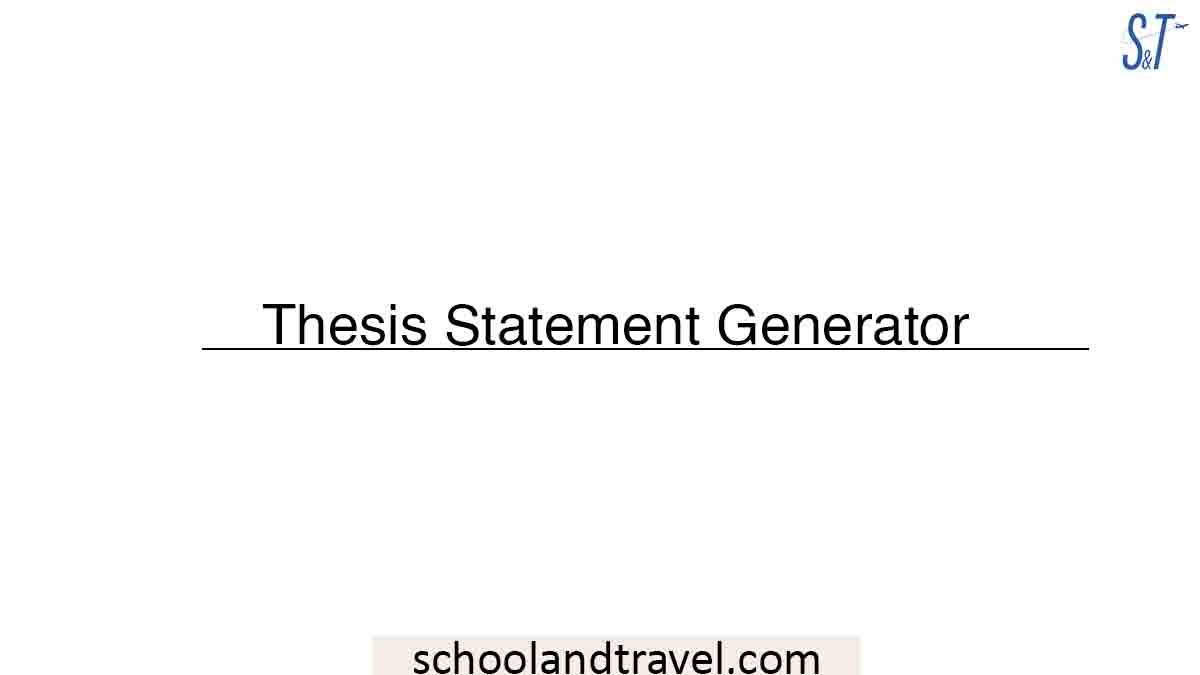We’ve all been there – those days when the idea of going to school feels like an impossible task.
Sometimes, the weight of homework, exams, and extracurricular activities can make staying in bed much more appealing.
For some students, the solution is to fake the sick to get out of going to school.
While faking sick might seem harmless to get out of school for the day, it’s important to remember that it’s not a sustainable solution.
This article is an objective piece that provides how to fake sick for school, but most importantly, it shifts our attention to addressing the root causes that may lead students to feel the need to affect ill and how to support them.
7 Reasons Students Fake Sick For School
Here are some reasons why students might fake sick for school:
1. Avoiding a test
One of the most common reasons for faking sick is to get out of taking a test.
Maybe you didn’t study enough, or you’re just feeling anxious about the exam.
Either way, faking sick can seem like an easy way to get out of taking the test without any consequences.
2. Needing a mental health day
School can be overwhelming, and sometimes you need a break.
Faking sick can be a way to take a day off to rest and recharge without explaining yourself to anyone.
3. Avoiding social situations
School can also be stressful for some students who struggle with social anxiety.
Faking sick can provide a way to avoid social situations that may cause stress or anxiety.
4. Disliking a particular subject or teacher
Let’s face it, not every subject or teacher will be your favorite.
If you’re struggling in a particular class or don’t get along with a teacher, faking sick can be a way to avoid that class or teacher for the day.
5. Wanting to hang out with friends
Sometimes, the temptation to hang out with friends is just too strong.
If you want to skip school to spend time with your friends, faking sick can be a way to do it without guilt.
6. Feeling physically exhausted
School can be physically demanding, with early morning start times, long days, and extracurricular activities.
If you’re feeling physically exhausted, faking sick can provide a way to take a day off to rest and recover.
7. General apathy toward school
Finally, some students don’t feel motivated to go to school.
They may feel like they’re not learning anything or that the curriculum is irrelevant to their interests.
In this case, faking sick can be a way to avoid a place they don’t feel connected to.
Tips On How To Fake Sick For School
Faking sick to skip school is not recommended or encouraged. Attending school regularly is essential to ensure you get the education you need.
However, if you’re going to fake sick, you might as well do it right. Here are some tips on how to convincingly fake sick for school:
1. Plan ahead
If you know you want to skip school, plan. Don’t just wake up and pretend to be sick on a whim.
Think about what illness you want to fake and how you will remove it. This will help you be more convincing when it’s time to implement your plan.
2. Know your symptoms
If you’re going to fake sick, you need to know the symptoms of the illness you’re pretending to have.
Do your research and figure out what symptoms you need to exhibit.
For example, if you’re faking a cold, you might want to practice coughing and sneezing convincingly.
3. Don’t overdo it
While you want to be convincing, you don’t want to overdo it.
If you’re coughing every five seconds or acting like you’re about to pass out, it will be apparent that you’re faking it.
Instead, be subtle and realistic in your symptoms.
4. Make it believable
If you’re going to fake sick, you must make it likely.
This means you need to think about the timing of your illness.
If you fake a stomach ache, for example, you might want to eat something that will upset your stomach the night before so that it’s more convincing.
5. Stay in character
Once you’ve started faking sick, you need to stay in character. Don’t suddenly start acting fine and energetic if someone comes to check on you.
Keep up the act until you’re sure you’re clear.
6. Use props
If you want to be convincing, you might use props to help sell your illness.
For example, if you’re faking a fever, you could use a thermometer to show that your temperature is high.
7. Be consistent
If you’re going to fake sick, you need to be consistent.
Ensure your story is the same when talking to your parents, teachers, and anyone else who asks about your health.
Inconsistencies in your story could raise suspicions.
Reasons You Shouldn’t Fake Sick For School
You might be tempted to fake sick and stay home, but before you grab your phone and start practicing your cough, let’s talk about the reasons why you shouldn’t do it:
1. Dishonesty can have consequences
Lying about being sick can lead to losing trust in those around you, including your teachers, parents, and peers.
It can make it harder for people to believe you when you’re telling the truth and harm your relationships with those who care about you.
2. Missing school means missing out
School is where you learn new things, meet new people, and gain experiences that shape your future.
If you fake sick and stay home, you’ll miss out on valuable learning opportunities that could significantly impact your future.
3. Falling behind
If you miss a school day, catching up on what you missed can be challenging.
Your teacher may not have the time to review the material again, and your classmates may have moved on to new topics.
Falling behind in your studies can affect your grades, impacting your long-term academic and career goals.
4. Being unprepared
Skipping school can make it harder to be prepared for tests and assignments.
Missing a class or two can be detrimental, especially if the material is essential for upcoming exams.
In other words, faking sick could lead to additional stress and anxiety if you’re not adequately prepared for the academic work ahead.
5. Learning how to cope with stress
School can be challenging and stressful, and learning how to cope with those challenges is an essential life skill.
If you always avoid school by faking sick, you’ll miss out on the opportunity to learn those coping mechanisms, which can have long-term consequences on your mental and emotional health.
Strategies Schools Can Put In Place To Make Sure Students Don’t Fake Sick
While it’s impossible to eliminate students from faking sick, by implementing these strategies, schools can create an environment where students are encouraged to attend school regularly and feel supported when they need help.
This can help reduce the number of students who fake sick and ensure that students are getting the education they need to succeed in the future:
1. Create a positive school environment
Students are more likely to attend school when they feel connected to their school community and enjoy going to school.
Schools can create a positive environment by promoting school spirit, offering extracurricular activities, and encouraging student involvement in school events.
2. Make learning engaging
Students are more likely to attend school when they feel like learning and being engaged in their classes.
Teachers can make their lessons more interesting by incorporating hands-on activities, group projects, and technology.
3. Provide support for mental health
Schools can offer counselling services, mental health resources, and support groups for students struggling with mental health issues.
By providing support, schools can help students manage their stress and anxiety and reduce their need to fake sick to take a mental health day.
4. Encourage parent involvement
Parents play a critical role in their child’s education.
By encouraging parents to be involved in their child’s school life, schools can help create a supportive and accountable community where students are encouraged to attend school regularly.
5. Monitor attendance
Schools can monitor attendance and contact parents when a student has excessive absences.
This helps parents and schools identify any issues causing the student to miss school and take appropriate action.
6. Enforce consequences for truancy
Schools can enforce consequences for students who regularly skip school without a valid reason.
Consequences include detention, suspension, or even legal action in extreme cases.
Frequently Asked Questions (FAQs) On How To Fake Sick For School
You will be quickly released from school early if you fake a personal illness than for any other reason.
You can contract a cold via your nose, eyes, and mouth.
Yes, breathing in cold air can make you fall sick. It can lead to a cough and result in bronchial irritation.
You can reduce a terrible fever by drinking enough water, sponging, showering, eating soups, taking fruit juices, and taking vitamin C.
Conclusion
Skipping school can have negative consequences on your education and your future opportunities.
Attending school regularly is essential to ensure you get the education you need instead of faking sick.
If you feel overwhelmed or need a break, communicate with your parents, teachers, or a school counsellor.
They may be able to provide support and resources and develop a plan that doesn’t involve dishonesty to help you manage your stress and get the help you need.
Awesome one; I hope this article answers your question.
Editor’s Recommendations:
- How to make Friends after College (Steps, Processes, FAQs)
- How to Make Friends as a Transfer Student (Reasons, FAQs, Steps)
- How to make friends as an Introvert in College
- 10 Actionable Steps to make Friends in your 20s.
- 25 Questions To Ask College Recruiters For Athletics (FAQs)
- How To Go Back To High School After Dropping Out (FAQs)
- 15 College Roommate Boundaries List (Meaning, FAQs)
If you find this article good, please share it with a friend.


